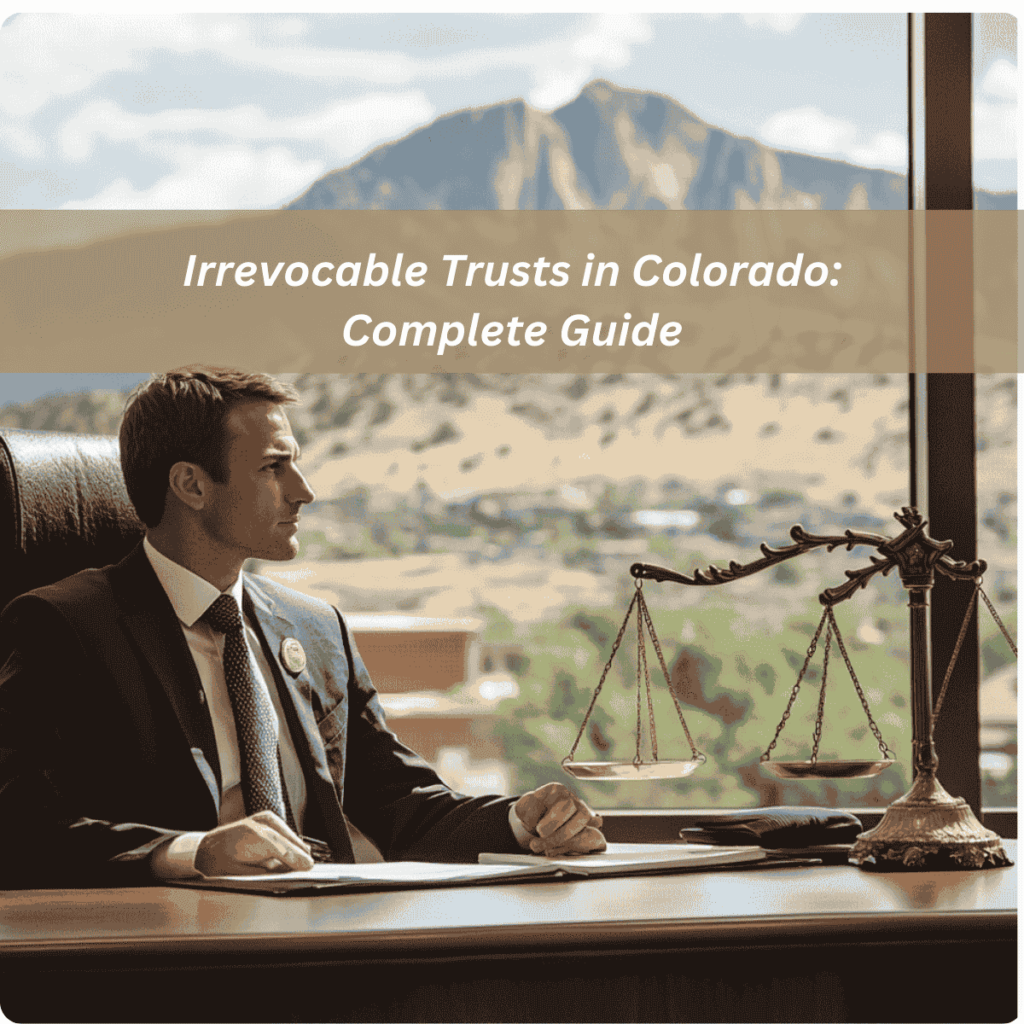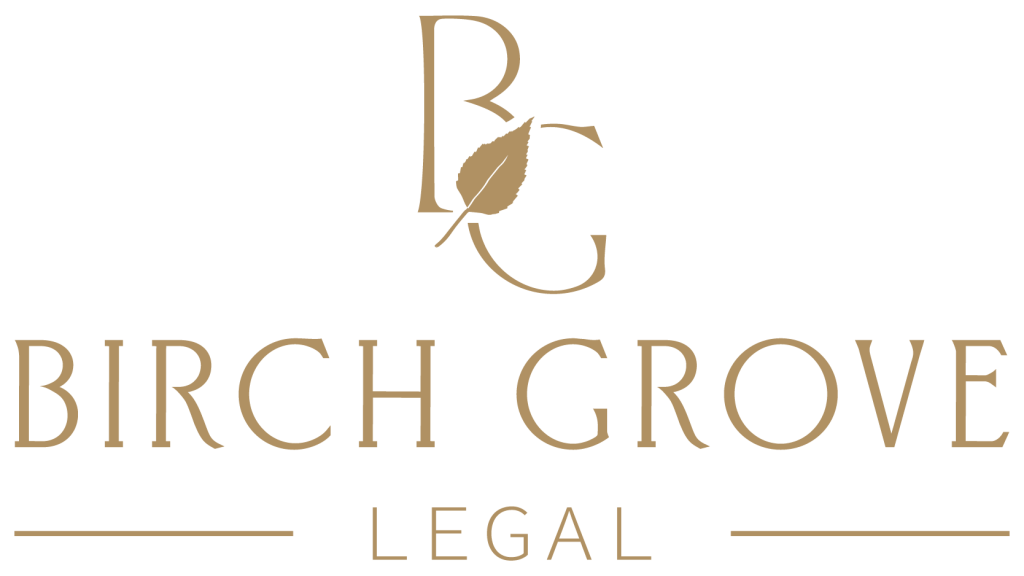Revocable Vs Irrevocable Living Trusts in Colorado

When you’re considering estate planning in Colorado, the choice between revocable and irrevocable living trusts can significantly impact your financial future. Revocable trusts allow you to maintain control and make changes as needed, but they come with limitations regarding asset protection. On the other hand, irrevocable trusts can shield your assets from creditors and offer tax advantages, yet they lock you into your decisions. Understanding the nuances of each option is crucial for making a choice that aligns with your goals, but what factors should you really weigh to determine the best fit for your situation?
Key Takeaways | Revocable Vs Irrevocable Living Trusts
- Revocable living trusts offer flexibility, allowing changes and control over assets during the grantor’s lifetime, while avoiding probate delays.
- Irrevocable living trusts provide asset protection from creditors and can reduce estate taxes by removing assets from the taxable estate.
- Revocable trusts maintain privacy since trust documents are not publicly recorded, whereas irrevocable trusts cannot be altered once established.
- Combining both trust types can optimize estate planning by providing flexibility and asset protection tailored to individual needs.
- Consulting an estate planning attorney in Colorado is essential for navigating the complexities of trust arrangements and ensuring compliance with state laws.
What Are Revocable Living Trusts?

In a nutshell, with revocable living trusts, you retain control over the assets, making it easier to adjust trust funding as your circumstances change.
When you pass away or become incapacitated, the appointed trustee takes on significant responsibilities. They oversee the asset distribution to your beneficiaries, ensuring your wishes are honored without the delays often associated with probate. This process not only simplifies the transition of assets but also maintains your privacy, as the details remain confidential.
It’s crucial to consider the estate tax implications of establishing a revocable living trust. While these trusts don’t inherently provide tax benefits, they can help streamline your estate planning efforts, potentially reducing tax liabilities through strategic asset management.
Advantages of Revocable Trusts

Revocable trusts offer several advantages that make them appealing for estate planning. Their flexibility allows you to make changes as your circumstances evolve, which is essential for effective asset management.
Here are some key benefits:
- Avoids probate, ensuring quicker distribution of assets to your beneficiaries.
- Maintains privacy, as your trust documents aren’t publicly recorded like wills.
- Simplifies trust funding, allowing for easier management of assets during your lifetime.
With revocable trusts, you can designate beneficiaries directly, streamlining the transfer process. This also helps you address tax implications effectively, as your assets remain part of your estate for tax purposes until your passing.
Furthermore, if you become incapacitated, a designated trustee can manage your assets without court intervention, preserving your wishes and ensuring seamless asset management.
Disadvantages of Revocable Trusts

While revocable trusts offer considerable advantages, they also come with notable disadvantages that you should consider. One major drawback is that they typically require ongoing trust funding, meaning you need to regularly transfer assets into the trust to ensure it functions as intended. This can be time-consuming and may lead to oversight in asset management if not handled diligently.
Additionally, revocable trusts don’t provide asset protection from creditors or legal claims. Since you retain control over the assets, they remain part of your taxable estate, which can have significant tax implications upon your passing. This lack of asset protection can be a concern, especially if you’re worried about potential lawsuits or financial liabilities.
Moreover, the responsibilities of managing a revocable trust often fall on you or a designated trustee. This can create complexities in estate planning, particularly if the trustee is inexperienced or unable to fulfill their duties effectively.
What Are Irrevocable Living Trusts?
For those considering estate planning options, irrevocable living trusts present a distinct set of features and benefits that differentiate them from their revocable counterparts. Understanding these differences is crucial for effective estate planning.
- Irrevocable trust strategies can provide significant asset protection benefits.
- You’ll need to consider the tax implications analysis, as these trusts often reduce estate taxes.
- The complexities of trust management may require professional oversight.
Once established, an irrevocable trust can’t be altered or revoked, which means you’ll lose control over the assets. This shift necessitates careful estate planning considerations, particularly for those who anticipate changes in their financial situation.
Additionally, the assets placed in an irrevocable trust are removed from your taxable estate, potentially leading to substantial tax savings.
However, the intricacies of managing an irrevocable trust demand a thorough understanding of trust management complexities. You may need to work with an estate planner to navigate these challenges effectively.
Benefits of Irrevocable Trusts

One of the primary benefits of irrevocable trusts is their ability to provide robust asset protection. By transferring assets into an irrevocable trust, you effectively separate them from your personal estate, shielding them from creditors and lawsuits. This means that even if you face financial difficulties, those assets remain protected, ensuring your beneficiaries receive their intended inheritance.
Additionally, irrevocable trusts offer significant tax benefits. Since the assets are no longer part of your taxable estate, they can help reduce estate taxes, allowing for a more efficient wealth transfer. This strategic estate planning tool also facilitates Medicaid qualification, as it lowers your reported assets, potentially making you eligible for assistance while protecting your legacy.
In terms of trust management, irrevocable trusts provide a structured approach to asset distribution. You can set specific terms for how and when assets are distributed to beneficiaries, ensuring your wishes are honored.
This level of control, combined with the benefits of asset protection and tax advantages, makes irrevocable trusts a powerful option for those serious about long-term estate planning and safeguarding their wealth for future generations.
Drawbacks of Irrevocable Trusts

Irrevocable trusts, despite their advantages, come with significant drawbacks that potential users should consider. Here are a few key challenges:
- You lose control over your assets once they’re placed in the trust.
- High setup and ongoing maintenance costs can add up.
- Complex trust administration may require professional oversight.
When you think about long-term planning considerations, the lack of flexibility in irrevocable trusts can pose asset management challenges. You can’t easily remove assets, which might lead to beneficiary concerns if circumstances change.
Moreover, a thorough tax implications analysis is crucial, as removing assets from your taxable estate can have unintended tax consequences.
Trust administration complexities also arise, requiring extensive documentation and compliance with legal standards. These factors can complicate the management of the trust, making it essential to have a clear understanding before proceeding.
If you choose an irrevocable trust, be prepared for the commitment and potential hurdles that come with it. Balancing these drawbacks against the benefits will help you make an informed decision about whether an irrevocable trust is right for your estate planning needs.
Choosing the Right Trust

When deciding between a revocable and an irrevocable living trust, it’s essential to evaluate your specific estate planning goals and personal circumstances.
If you prioritize flexibility and control, a revocable trust may be the right fit. It allows you to adjust beneficiary designations and manage assets with relative ease, making it suitable for those who want to adapt their plans as life changes.
On the other hand, if you’re looking for tax benefits and asset protection, an irrevocable trust could serve your needs better. This type of trust removes assets from your taxable estate, reducing estate taxes while providing a structured approach to asset management.
However, you must be comfortable relinquishing control, as trustee responsibilities over the assets become permanent.
Consider the tax implications of each option, as they can significantly impact your overall estate planning strategy. Consulting with an estate planning attorney can help clarify the best choice for your situation.
Ultimately, the right trust aligns with your financial objectives, offers the desired protection for your beneficiaries, and simplifies the management of your estate.
Combining Trust Types for Planning

Combining revocable and irrevocable living trusts can enhance your estate planning strategy by leveraging the unique advantages of each type. By strategically integrating these trust types, you can achieve a more tailored approach to your financial goals.
- Trust fund flexibility: Revocable trusts allow for adjustments as your circumstances change, while irrevocable trusts provide stability.
- Hybrid trust benefits: This combination can offer asset protection solutions while maintaining the ability to manage assets effectively.
- Estate planning efficiency: Streamlining your estate plan can reduce the burden on your beneficiaries and minimize delays in asset distribution.
When you utilize combining trust strategies, you can capture the essential benefits of both trust types.
For instance, placing certain assets in an irrevocable trust can shield them from creditors, while keeping others in a revocable trust allows for easy management and adjustments.
This approach not only enhances asset protection but also ensures that your estate planning remains efficient and responsive to your evolving needs.
Consulting with an estate planning attorney can help you navigate these complexities and ensure you maximize the benefits of your hybrid trust arrangement.
Getting Legal Help
Choosing between revocable and irrevocable living trusts in Colorado hinges on your unique estate planning goals. For instance, if you’re wanting to maintain control over your assets while avoiding probate, a revocable trust is ideal. However, if you’re concerned about asset protection from creditors, an irrevocable trust may be more suitable. By understanding the nuances of each trust type, you can make an informed decision that aligns with your financial and familial needs.
Frequently Asked Questions
Are There Specific Fees for Setting up a Trust in Colorado?
When setting up a trust in Colorado, you’ll encounter various costs, including trust setup costs, attorney fees, management expenses, and estate planning fees. Trust funding requirements also add to the overall financial commitment involved.
How to create a revocable living trust in Colorado?
Creating a revocable living trust in Colorado involves several steps. First, choose a trustee and decide on your beneficiaries. Then, list your assets and draft the trust document. Finally, sign and notarize the document, and transfer your assets into the trust. It’s advisable to consult with an estate planning attorney to ensure compliance with Colorado laws.
Can I Transfer My Home Into a Revocable Trust in Colorado?
Yes, you can transfer your home into a revocable trust in Colorado. This involves a home title change, ensuring trust property transfer. The benefits of revocability enhance your estate planning advantages and simplify the trust funding process.
How to fill out a revocable living trust?
Filling out a revocable living trust requires careful consideration. Begin by naming the trust and trustee, then list the assets you want to include. Specify your beneficiaries and define how you want the assets distributed. Once completed, sign and date the document. Some states may require notarization for added legal validity.
Who can prepare a revocable living trust?
Estate planning attorneys are the most qualified, but some financial advisors and online legal services also offer trust preparation. The complexity of your situation should guide your choice of preparer.
How to do revocable living trust?
Doing a revocable living trust involves several key steps. Start by deciding on the trust’s terms, including beneficiaries and asset distribution. Create the trust document, then sign and notarize it. Transfer your assets into the trust and update beneficiary designations accordingly. Regular review and updates are crucial to ensure the trust remains aligned with your wishes.
What not to put in an irrevocable trust?
When considering an irrevocable trust, certain assets should generally be avoided. These include assets you might need access to in the future, property with outstanding loans, and retirement accounts like IRAs or 401(k)s. Health savings accounts (HSAs) and assets you plan to sell soon are also typically not ideal for irrevocable trusts due to potential tax implications and loss of control.
How Do Taxes Work With Irrevocable Living Trusts?
Taxes for irrevocable living trusts can be complex. Generally, these trusts are separate tax entities, meaning they file their own tax returns. The trust pays taxes on income retained within it, while beneficiaries pay taxes on distributions they receive. Irrevocable trusts can offer potential tax benefits, such as reducing estate taxes or shifting tax burden to beneficiaries in lower tax brackets. However, the specific tax implications depend on the trust’s structure and how it’s managed. It’s crucial to consult with a tax professional or estate planning attorney for personalized advice.
What Happens if I Move Out of Colorado With a Trust?
If you move out of Colorado with a trust, the trust typically remains valid, as trusts are generally honored across state lines. However, some aspects may need attention. You should review your trust document to ensure it complies with your new state’s laws. Some states have different rules regarding trusts, which might affect administration or tax treatment. Additionally, if your trust owns real property in Colorado, you may need to consider how the new state’s laws interact with Colorado’s property laws. It’s advisable to consult with an estate planning attorney in your new state to review and potentially update your trust.
Can a Trust Be Contested in Colorado?
Yes, a trust can be contested in Colorado, but the process is often challenging. Common grounds for contesting a trust include lack of mental capacity of the grantor, undue influence, fraud, or improper execution. In Colorado, interested parties typically have three years from the grantor’s death to contest a trust, or one year from receiving notice of the trust’s existence.
However, many trusts include “no-contest” clauses, which may disinherit beneficiaries who unsuccessfully challenge the trust. Contesting a trust requires strong evidence and often involves complex litigation. Anyone considering contesting a trust should consult with an experienced estate litigation attorney to understand their rights and the potential consequences.
[trustindex no-registration=google]






0 Comments